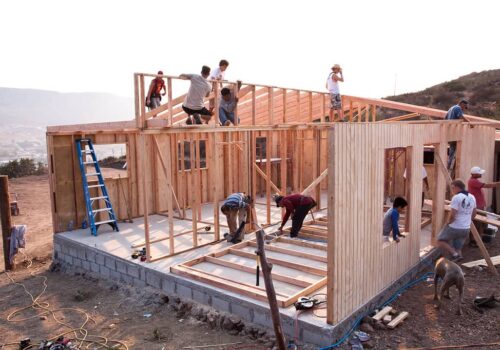
Key Considerations Before Building a House in Nepal
Things need to consider before building a house in Nepal: Building your own house in Nepal is a dream come true for many individuals and families. However, it’s essential to be well-prepared and knowledgeable about the process to ensure a successful and satisfying outcome. In this blog post, we will discuss the key things you must know before embarking on the journey of building a house in Nepal.
Land Ownership and Documentation:
Before starting the construction process, ensure that you have clear and legal ownership of the land. Verify land ownership certificates, deeds, and other necessary documentation to avoid any future disputes or legal complications. Seek assistance from legal experts to ensure all necessary paperwork is in order.
Building Permits and Codes:
Obtaining the required building permits and adhering to building codes and regulations is mandatory in Nepal. Familiarize yourself with the local building authority’s guidelines, zoning regulations, and construction requirements. Ensure that your building plans comply with the regulations to avoid any delays or penalties during the construction process.
Architectural Design and Planning:
Engage an experienced and reputable architect to create a well-thought-out architectural design that suits your needs and preferences. Collaborate closely with the architect to ensure the design aligns with your lifestyle, budget, and future requirements. Consider factors such as the number of floors, room layout, ventilation, natural light, and aesthetics during the planning phase.
Budgeting and Financing:
Establish a realistic budget for your house construction project. Take into account the cost of land, construction materials, labor, permits, professional fees, and contingencies. Seek financing options such as home construction loans, if required, and ensure you have a solid financial plan in place to cover the expenses throughout the construction process.
Engaging Contractors and Builders:
Selecting reliable and competent contractors and builders is crucial for a successful construction project. Conduct thorough research, check references, and review past projects before finalizing a contractor. Ensure they have the necessary licenses and experience in residential construction. Clearly communicate your expectations, timeline, and budget to avoid misunderstandings.
Material Selection and Quality:
Pay attention to the selection of construction materials to ensure durability, sustainability, and quality. Choose materials that are suitable for the local climate and environmental conditions. Engage with suppliers who provide genuine and certified materials. Balancing cost-effectiveness and quality is essential to ensure long-term satisfaction with your house.
Utility Connections:
Plan for the necessary utility connections, such as electricity, water supply, and sewage systems, during the construction phase. Liaise with the respective utility providers to understand the requirements, fees, and timeline for connection. Ensure that your house design and construction accommodate these utilities appropriately.
Construction Timeline and Supervision:
Establish a realistic construction timeline with your contractors and builders. Regularly supervise the construction progress to ensure adherence to the agreed timeline, quality of work, and compliance with the architectural plans. Regular site visits and communication with the construction team are vital to address any issues promptly.
Sustainable and Eco-Friendly Features:
Consider incorporating sustainable and eco-friendly features into your house design. These may include solar panels for electricity, rainwater harvesting systems, energy-efficient appliances, proper insulation, and natural ventilation. Building an environmentally conscious house not only reduces your carbon footprint but also contributes to long-term cost savings.
Post-Construction Considerations:
Once the construction is complete, there are still essential considerations to address. Plan for interior design, furnishings, landscaping, and any additional features or amenities you desire. Additionally, make sure to arrange for house insurance and necessary documentation for property ownership.
Conclusion:
Building a house in Nepal is a significant undertaking, requiring careful planning and consideration. By understanding the land ownership process, obtaining necessary permits, collaborating with professionals, budgeting wisely, selecting quality